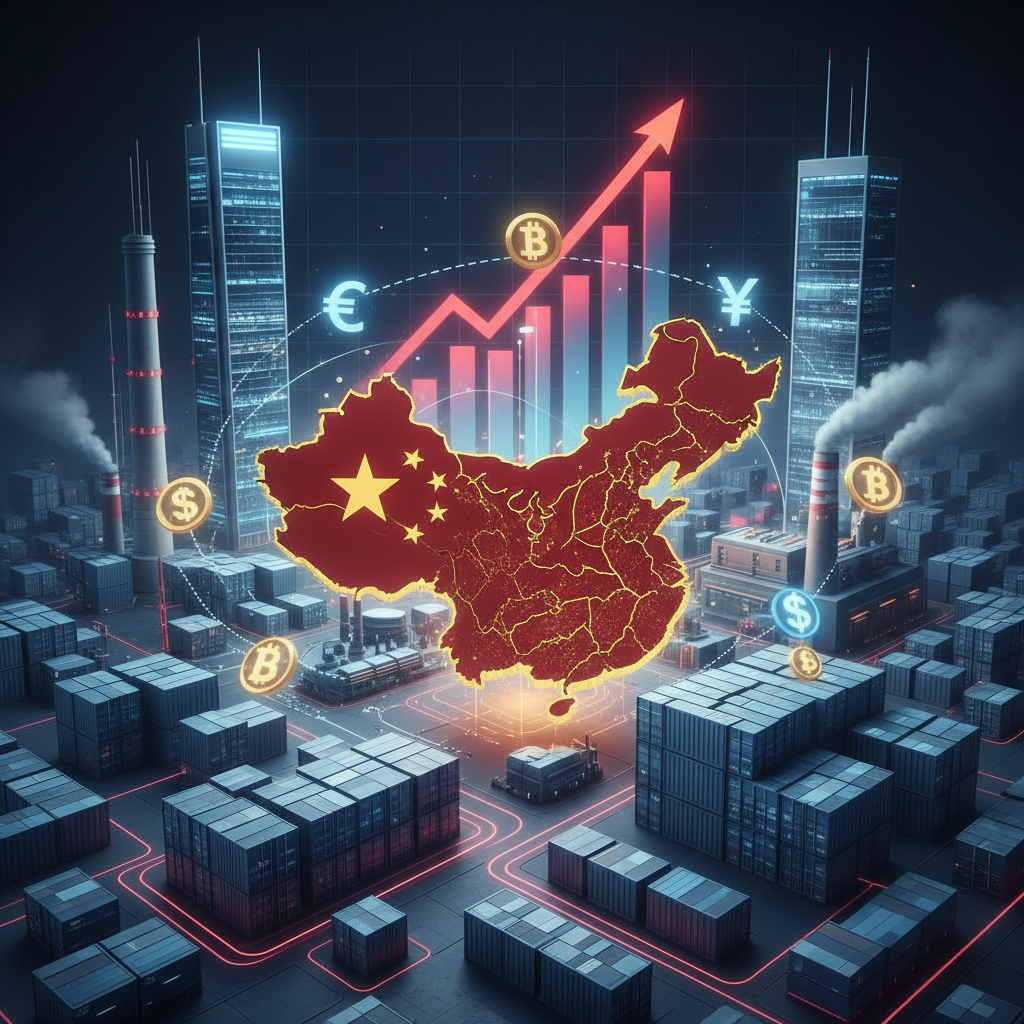Importance of China in global economic growth
China is a key engine in the global economy, with a consistent growth trajectory and rates that stand out in global comparison. This country is essential for international economic balance.
Also, his role as economic stabilizer it contributes greatly to global growth, showing significant influence that impacts various economies around the world.
Its economic dynamics allow it to be a leading actor, reinforcing the interconnection between markets and promoting sustainable and constant development at a global level.
Outstanding economic growth rates
China has maintained economic growth rates that are among the highest in the world, driving its development and expansion of its domestic market very quickly.
This sustained growth has allowed China to overcome economic challenges while maintaining a constant pace that positions it as a benchmark for other emerging economies.
The ability to maintain high rates reflects a dynamic economy, capable of adapting and evolving, which attracts investments and favors the generation of massive employment.
Contribution to global growth
In recent years, China has contributed approximately one 30% of global economic growth, evidencing its indispensable role in global economic progress.
Its internal demand and mass production generate a multiplier effect in various regions, strengthening production chains and international markets.
This notable contribution ensures that fluctuations in the Chinese economy have a direct impact on global trade and financial stability.
Transformation and technological leadership
China has revolutionized its economy by focusing on technological transformation, privileging progress towards more sustainable and efficient models. This transformation drives its global leadership.
The country combines ecological development strategies with innovation in advanced technology, positioning itself as a power capable of influencing global trends and value chains.
Thus, China not only strengthens its internal economy, but also promotes technological growth that has an impact on its international influence and global competitiveness.
Focus on ecological economics
China prioritizes one ecological economy to slow down environmental impacts and promote renewable energies. This reflects its commitment to long-term sustainable development.
Reducing emissions and investing in clean technologies are central elements of this strategy, seeking to balance economic growth with environmental responsibility.
This approach contributes to modernizing industrial sectors and positioning China as a leader in innovative green solutions adapted to global demands.
Innovation in artificial intelligence, robotics and biopharmaceuticals
China leads in artificial intelligence, robotics and biopharmaceutical, sectors that promote their economic and technological modernization with cutting-edge developments and strategic investments.
Accelerated innovation in these areas enhances productive efficiency and improves health and automation services, positioning China at the global forefront.
These technologies favor economic diversification and increased competitiveness, reinforcing the country's role as a global benchmark in innovation.
Strengthening the global value chain
China reinforces its influence in the global value chain by integrating innovations and consolidating its advanced and technological production capacity.
This allows the country not only to manufacture goods, but also to design and control key processes, increasing its prominence in international markets.
Thanks to this strategy, China expands its connection with trading partners and strengthens its competitive position in globally integrated economies.
China as a manufacturing power and consumer
China is recognized as the main manufacturing power globally, producing a great diversity of goods that supply global markets. This robust industrial capacity sustains its solid economic position.
Furthermore, the growth of its domestic market has generated a growing middle class, which promotes dynamic domestic consumption, reinforcing the demand for both national and imported products and services.
This balance between production and consumption makes China a central axis of the world economy, influencing multiple productive and commercial sectors.
Production of goods worldwide
China produces more than a third of manufactured goods globally, standing out in sectors such as technology, textiles, automotive and electronics, consolidating its industrial leadership.
This productive capacity is supported by advanced infrastructure, specialized labor and policies that promote innovation and efficiency in manufacturing.
The scale of this production makes it easier to meet international demands, positioning China as a key trading partner in global supply chains.
Middle class and internal consumption
The growing chinese middle class it is a fundamental driver of domestic consumption, increasing the demand for quality products and diverse services, from technology to luxury goods.
This consumer boom drives local economic development, fosters new business opportunities, and diversifies the economy beyond manufacturing alone.
Furthermore, the expansion of domestic consumption reduces dependence on exports, strengthening economic stability and adapting to global market trends.
Infrastructure and economic strategy
China has developed one modern and extensive infrastructure that facilitates economic integration with international markets, strengthening its global position.
This infrastructure includes transportation, communication and energy networks that connect regions inside and outside the country, promoting trade and international cooperation.
Its economic strategy is based on taking advantage of this infrastructure to attract investments and expand its influence on the global economy.
Integration in international markets
China is deeply integrated into international markets through trade agreements, special economic zones and participation in multilateral organizations.
Its trade openness and the development of projects such as the Belt and Road have expanded its reach, creating strong economic links in Asia, Europe and Africa.
This integration favors the export of goods and services, in addition to promoting technological and financial collaboration with other countries.
Attraction of foreign direct investment
China is one of the main destinations in the foreign direct investment (FDI), thanks to favorable policies, large markets and skilled labor.
The country offers tax incentives, free trade zones and an evolving business environment that attracts foreign capital and technologies.
This investment drives innovation, improves infrastructure and contributes to sustainable economic growth.






